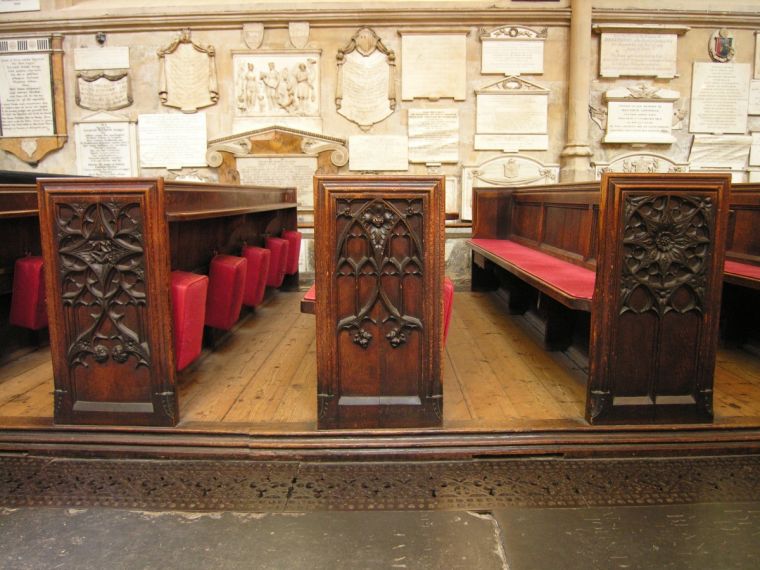Bath Abbey's pews and the battle for a strange church: We should resist normal
The battle for Bath Abbey's pews is not over yet, apparently. The Victorian Society – an estimable body dedicated to protecting the best of 19th-century architecture against the brutal assaults of vandal modernisers – lost its case last year, but is seeking leave to appeal.

The Abbey is a fine old medieval building in the heart of the city's tourist quarter, and the pews were designed by George Gilbert Scott, a great name. But – and here's the rub – the church is also a place of worship and ministry. The day may come when the Church of England decides some of these ancient edifices are more trouble than they're worth and turns them into museums, but that day is not yet.
And so – though I am a great lover of all things antique and abhor the wanton updating of anything at all on the spurious grounds that new is better than old – I'm with the church here; the pews can go for firewood, as far as I'm concerned.
But there's a wider question, symbolised by the Bath Abbey row – which, let's face it, is itself pretty niche – and it's not just about buildings.
How far should churches change in order to be 'relevant'? Should they update not just their seating, but their liturgy, their songs and their sermons to appeal to a new generation? The received wisdom among many evangelicals is that they should. The less a church looks or feels like a church the better. Let's not have a pulpit and a communion table; let's have a worship band instead. Ideally, a church building should be like a warehouse, or a shopping mall, or – if on a smaller scale – a living room. It's the same with language and music; strange is bad, so make it like everything else. The idea is that what's unique about a church is somehow alienating, and the more 'ordinary' it is the less off-putting it will be.
I really question that. I think the Christian faith is fundamentally strange. I don't for a moment think we should be deliberately incomprehensible, and for the most part the King James Version has had its day – as have the Bath Abbey pews.
There's a time for emotional intimacy with God. But both theologically and psychologically, acknowledging that fundamental strangeness in the buildings where we worship, the songs we sing and the language we use is essential. God is different.
I know: talking like this lays someone open to the charge of wanting to put unnecessary barriers between people and God. That's certainly a danger. But it's just a plea for recognising the value of the imagination, of the need for work and creativity in how we respond to God in worship.
If church offers us nothing that's any different from our everyday experience, in how it looks and feels, and how it talks about God, we end up with pretty thin gruel. It's no wonder, then, if people choose to stay at home.
Follow Mark Woods on Twitter: @RevMarkWoods











